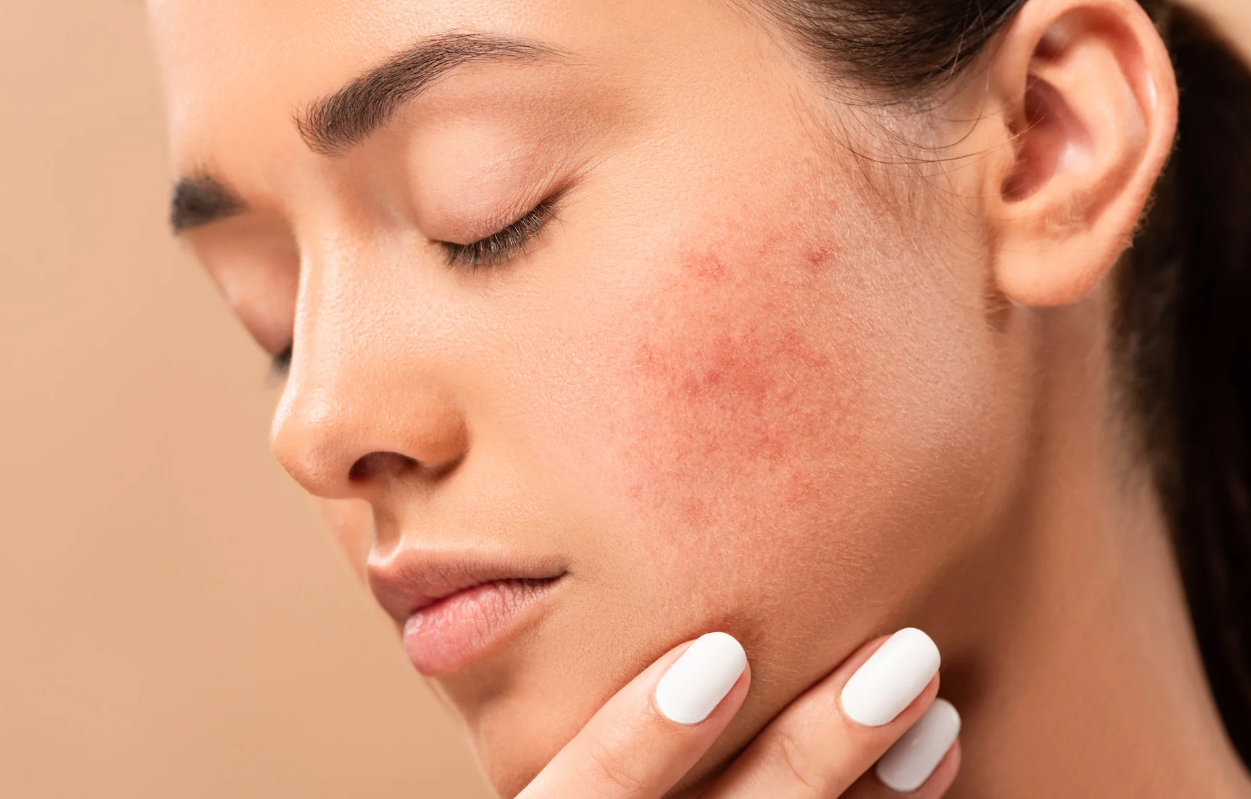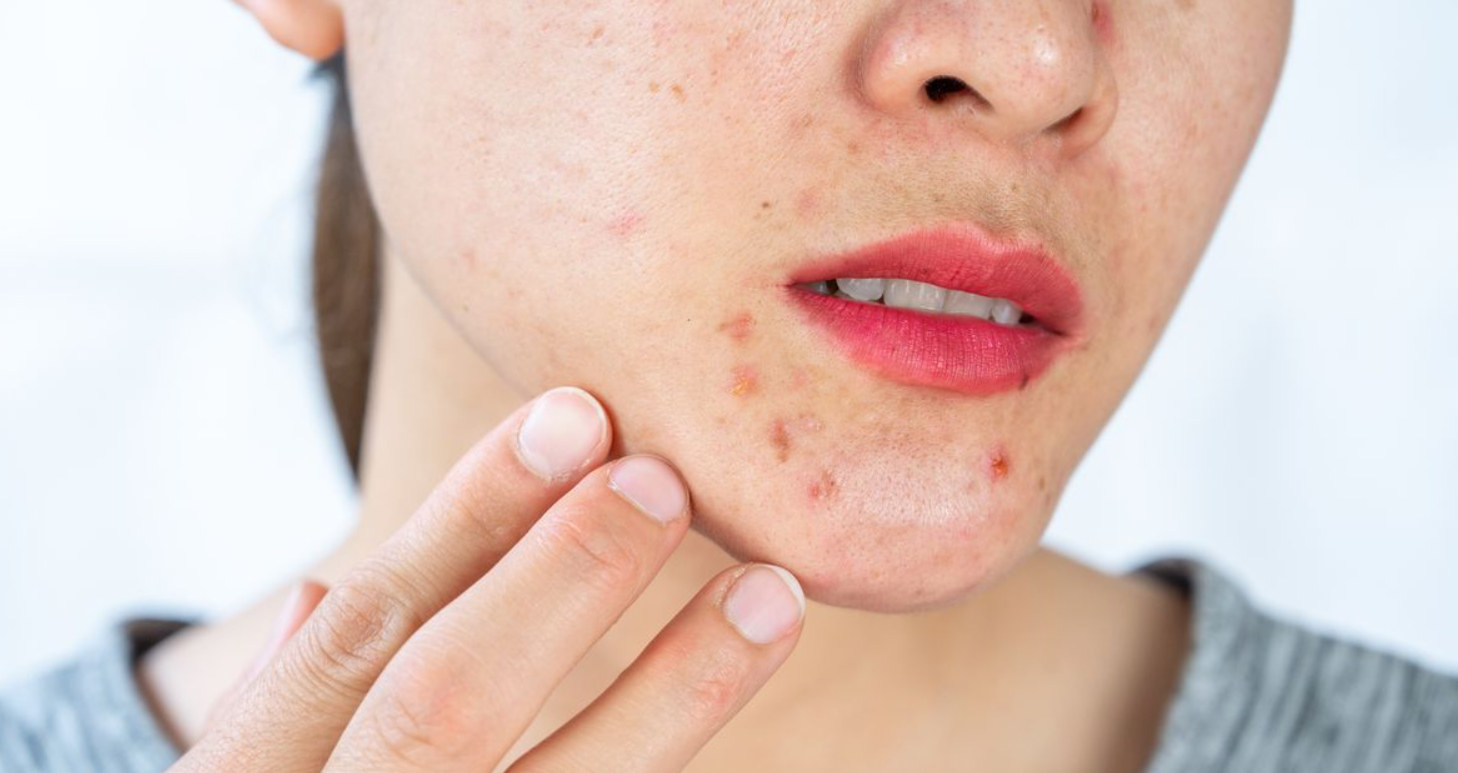How to Get Rid of Acne: Diagnosis and Treatment
Have you ever looked in the mirror and felt frustrated at the stubborn acne staring back at you? You're not alone. Millions worldwide grapple with acne, searching for effective solutions. At Clarion Medical and Aesthetics, we understand the impact of clear skin on your confidence and overall well-being. Leveraging the latest advancements in dermatology, we offer personalised treatments to transform your skin and life.
What Is Acne?
Acne is more than just an occasional pimple or blackhead; it's a complex skin condition that occurs when hair follicles become clogged with oil and dead skin cells. This blockage leads to the formation of comedones, papules, pustules, and sometimes cysts, which can appear on the face, chest, back, and shoulders. Beyond its physical manifestations, acne can have significant psychological effects, impacting self-esteem and social interactions.
How Common Is Acne?
Acne is the most prevalent skin condition worldwide, affecting as many as 85% of individuals between the ages of 12 and 24 at some point. While it predominantly affects adolescents and young adults due to hormonal changes, adults can suffer from acne too, with factors such as stress, diet, and cosmetics playing contributory roles.
Symptoms
Acne can manifest in various forms, each with its own set of challenges:
Whiteheads (Closed comedones): Small, flesh-coloured bumps with a white centre, indicating a pore completely blocked by oil and skin cells.
Blackheads (Open comedones): Darkened tips on the skin's surface, representing pores clogged but open, allowing some of the trapped sebum and skin cells to oxidise and darken.
Papules: Small, red, tender bumps with no head, indicating inflammation or infection in the hair follicles.
Pustules: Similar to papules but with a white or yellow pus-filled centre, often surrounded by red skin.
Nodules: Large, solid, painful lumps beneath the surface of the skin, formed by the buildup of secretions deep within hair follicles.
Cysts: Large, pus-filled lesions that look similar to boils and carry the highest risk of causing scarring.
Types of Acne
Fungal Acne (Pityrosporum Folliculitis): Unlike traditional acne, fungal acne is caused by an overgrowth of yeast within the hair follicles, leading to itchy, uniform pimples.
Cystic Acne: The most severe form of acne, characterised by large, painful, pus-filled cysts beneath the skin's surface, often resulting in scarring.
Hormonal Acne: Typically appears along the jawline and chin and is caused by fluctuations in hormones, which can increase oil production.
Nodular Acne: Similar to cystic acne but the infections are deeper within the skin, forming hard nodules that can be painful and long-lasting.
What Causes Acne?
Acne is the result of a complex interplay of factors that lead to inflammation and breakout of the skin. It develops as a result of a combination of factors:
Overproduction of oil (sebum)
Accumulation of dead skin cells
Bacterial growth in hair follicles
Inflammation of the skin
Hormonal changes, particularly those during puberty, pregnancy, and menstrual cycles, can significantly increase sebum production. Genetics also play a crucial role, with a family history of acne increasing one's risk.
Some Common Triggers
Understanding and avoiding common triggers can significantly reduce the frequency and severity of acne breakouts:
Diet: Research indicates a link between certain dietary factors and acne, particularly foods high in glycaemic index and dairy products, which may influence hormone levels and sebum production.
Stress: While not a direct cause, stress can exacerbate acne by increasing cortisol levels, which in turn can stimulate oil glands to produce more sebum.
Cosmetic Products: Heavy, oil-based makeup and certain skincare products can clog pores, leading to breakouts. It's crucial to select non-comedogenic or oil-free products.
Environmental Factors: High humidity and pollution can increase oil production and trap pollutants in the pores, exacerbating acne.
Hormonal Changes: Periods of significant hormonal change, such as puberty, menstrual cycles, pregnancy, and menopause, can trigger acne outbreaks.
Poor Hygiene: Infrequent washing and improper cleansing can allow oil and dead skin cells to accumulate, clogging pores and causing acne.
Diagnosis of Acne
A comprehensive approach to diagnosing acne involves several steps to ensure accurate assessment and treatment planning:
Physical Examination: A dermatologist will examine your skin to determine the types of acne lesions and their severity.
Medical History: Discussing your medical history helps identify potential genetic factors and understand any previous treatments and their outcomes.
Lifestyle Assessment: Evaluating your diet, stress levels, skincare routine, and use of cosmetics can help identify potential triggers.
Hormonal Evaluation: For women experiencing signs of hormonal imbalance, such as irregular menstrual cycles or excessive hair growth, hormonal testing may be recommended to tailor treatment effectively.
How to Get Rid of Acne?
Topical Medications
Topical treatments are applied directly to the skin and are effective for mild to moderate acne:
Retinoids: Derived from vitamin A, retinoids work by unclogging pores and preventing the formation of acne lesions. Initial irritation is common but typically subsides with continued use.
Benzoyl Peroxide: This agent kills bacteria associated with acne and helps peel away layers of dead skin cells, reducing the risk of pore clogging.
Salicylic Acid: It works by dissolving the type of skin debris that clogs pores and causes acne. It also has anti-inflammatory properties.
Oral Medications
Oral medications can be highly effective for moderate to severe acne or acne that's resistant to topical treatments alone:
Antibiotics: Long-term use of antibiotics is generally avoided due to the risk of antibiotic resistance, but they can be effective in short courses to reduce bacteria and inflammation.
Combined Oral Contraceptives: For women, these can regulate hormones that trigger oil production. It's important to discuss potential side effects and risks with your healthcare provider.
Isotretinoin: This powerful medication is reserved for severe acne that hasn't responded to other treatments. It dramatically reduces the size of the skin's oil glands and sebum production but requires strict monitoring due to its potential side effects, including birth defects, if taken during pregnancy.
Therapies
Several therapeutic options can complement oral and topical treatments:
Light Therapy: Targets and kills Propionibacterium acnes bacteria on the skin. Multiple sessions are often required for significant improvement.
Chemical Peels: Involves applying a chemical solution to the skin, causing it to exfoliate and eventually peel off, revealing regenerated skin beneath that is typically smoother.
Extraction Procedures: Dermatologists use special tools to remove whiteheads and blackheads without damaging the skin.
How Long Does It Take for Acne to Go Away?
The duration for acne treatment to show results varies widely among individuals and depends on the treatment method. Some may see improvements within a few weeks, while others may need several months. Consistency and adherence to the treatment plan are key to achieving the best outcomes.
Preventing Acne
Preventing acne involves a multifaceted approach that encompasses skincare routines, dietary adjustments, and lifestyle changes. By adopting these strategies, individuals can significantly reduce the occurrence of acne and maintain clearer, healthier skin over the long term.
Adopt a Consistent Skincare Routine
Establishing a daily skincare routine that includes gentle cleansing and the application of non-comedogenic moisturisers can help maintain the skin's natural barrier and prevent clogged pores. For those wondering specifically about how to get rid of cystic acne, incorporating products with ingredients like benzoyl peroxide or salicylic acid can be particularly effective, as they target deeper layers of the skin and reduce inflammation.
Maintain a Balanced Diet
Evidence suggests that certain foods may trigger acne in some people. To prevent acne, focus on a balanced diet rich in fruits, vegetables, lean proteins, and whole grains. Limiting intake of high glycaemic index foods, dairy products, and processed foods can also help manage acne-prone skin.
Stay Hydrated
Proper hydration is essential for maintaining healthy skin. Drinking plenty of water throughout the day helps flush out toxins and supports skin hydration, contributing to a clearer complexion.
Exercise Regularly
Regular physical activity increases blood flow, helps reduce stress, and promotes overall health, which can indirectly help prevent acne. Remember to cleanse your skin promptly after sweating to remove impurities and excess oil.
Manage Stress Effectively
High stress levels can exacerbate acne by increasing the production of hormones that stimulate oil glands. Engaging in stress-reduction techniques such as yoga, meditation, deep breathing exercises, or regular physical activity can help manage stress and reduce the likelihood of stress-induced acne.
Protect Your Skin from the Sun
Some acne treatments can make your skin more sensitive to sunlight, increasing the risk of sunburn. Applying a broad-spectrum, non-comedogenic sunscreen with an SPF of 30 or higher can protect your skin from harmful UV rays without clogging your pores.
Avoid Picking or Squeezing Pimples
While it may be tempting to pick or squeeze pimples in an attempt to get rid of them quickly, this can lead to inflammation, infections, and scarring. Instead, focus on gentle, targeted treatments to address breakouts.
Regularly Wash Bed Linens and Exercise Gear
Oil, sweat, and bacteria can accumulate on sheets, pillowcases, and workout clothing, contributing to acne. Washing these items regularly can help reduce the risk of breakouts.
Battling with Acne? Book Your Consultation Now
At Clarion Medical and Aesthetics, we understand the challenges of living with acne. Our team of experts is dedicated to providing personalised, innovative treatments that address not only the symptoms but the root causes of acne. Whether you're dealing with occasional breakouts or chronic acne, we're here to help you achieve clear, healthy skin. Don't let acne hold you back any longer. Book your consultation with us today and take the first step towards a confident, acne-free life.
FAQ Section
How to Get Rid of Pimples?
Start by gently cleansing your skin twice daily with a mild soap or cleanser to remove excess oil and dirt. Apply over-the-counter acne treatments containing ingredients like benzoyl peroxide or salicylic acid to target bacteria and reduce inflammation. Avoid picking or squeezing pimples, as this can lead to scarring.
What Is the Most Effective Acne Treatment?
The effectiveness of acne treatments varies, with the best approach often involving a combination of therapies tailored to the individual's specific needs.
Can Changing My Diet Improve Acne?
Yes, for some individuals, dietary changes, especially reducing high glycaemic and dairy intake, can improve acne.
Is It Possible to Cure Acne Permanently?
While there's no universal cure for acne, many can achieve long-term remission with the right treatment plan.
How Can I Prevent Acne Scars?
Early, effective treatment is key to preventing acne scars. Avoid picking or squeezing pimples to reduce the risk of scarring.
Does Stress Cause Acne?
Stress doesn't directly cause acne, but it can exacerbate existing conditions by increasing oil production.
Is Acne Contagious?
No, acne is not contagious and cannot be spread from person to person.
Can Makeup Cause Acne?
Some makeup products can clog pores and worsen acne. Opt for non-comedogenic products to minimise this risk.





